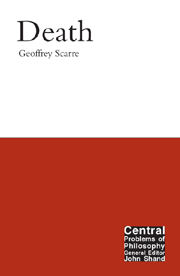3 - Long lives, short lives
Summary
How long should we live?
In one of his Dialogues of the Dead, the Greek satirist Lucian of Samosata presents a conversation in Hades between the Cynic philosopher Menippus and the centaur Chiron, who had voluntarily relinquished his immortality. What, asks Menippus, had made Chiron so fond of death, a thing that most people shun? Was it not very pleasant to be alive and to see the light of day? But Chiron retorts that you can have too much of a good thing:
I consider pleasure to come from variety and change; but I was living on and on, and enjoying the same things – sun, light and food; the seasons were always the same, and everything came in its turn, one thing seeming to follow automatically upon another; and so I had too much of it all, for I found my pleasure not in always having the same thing, but also in doing quite without it.
(Lucian 1961: 41, 43)Although Chiron is so far enjoying the contrasting conditions to be found in the underworld, Menippus sows a doubt in his mind. Won't life here too, he asks, become equally monotonous in the course of time? When Chiron asks anxiously whether there is anything that can be done to avoid this, the philosopher replies that one should do what a sensible man does: “be content and satisfied with one's lot and think no part of it intolerable” (ibid.: 43, 45).
- Type
- Chapter
- Information
- Death , pp. 47 - 64Publisher: Acumen PublishingPrint publication year: 2006



